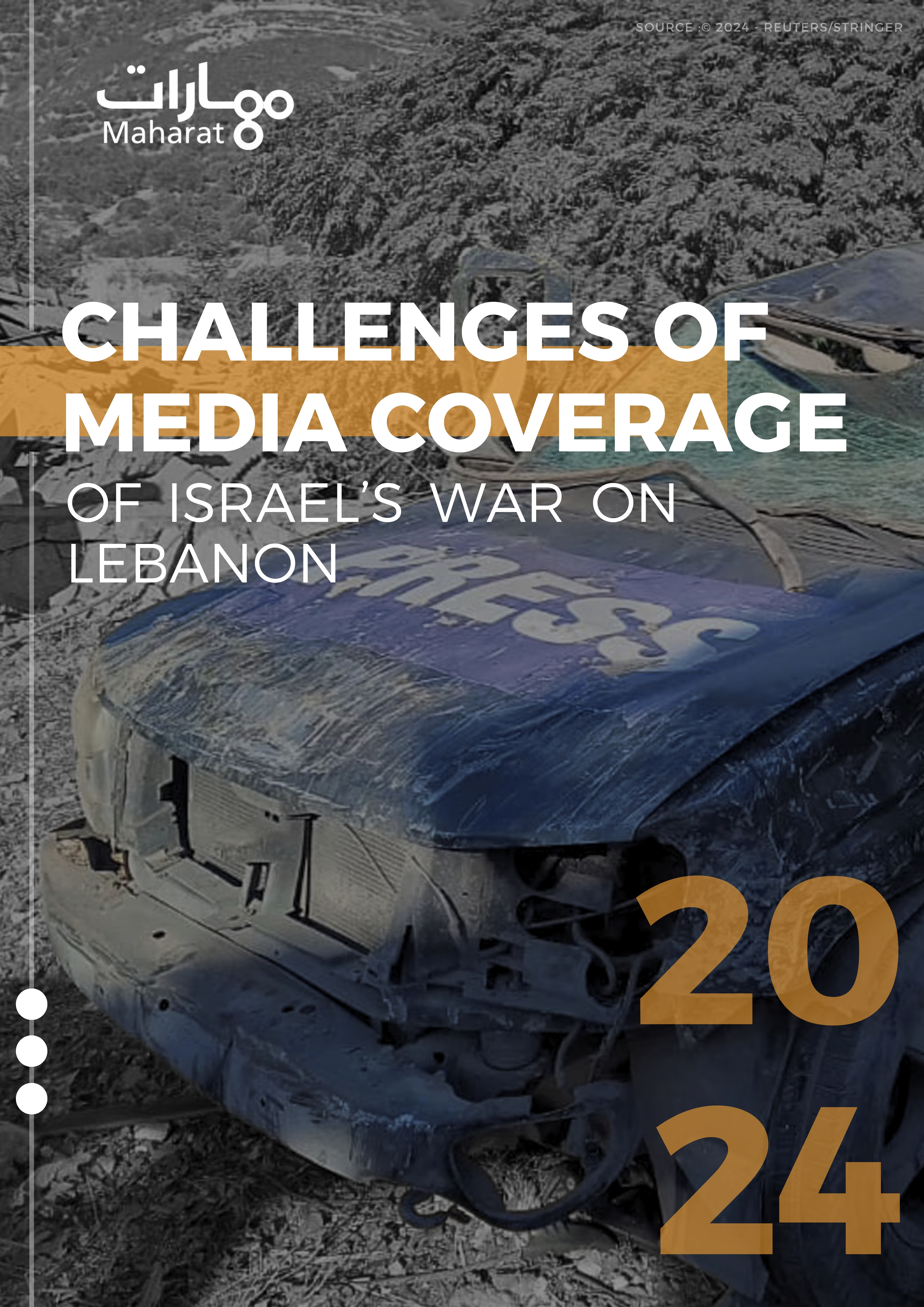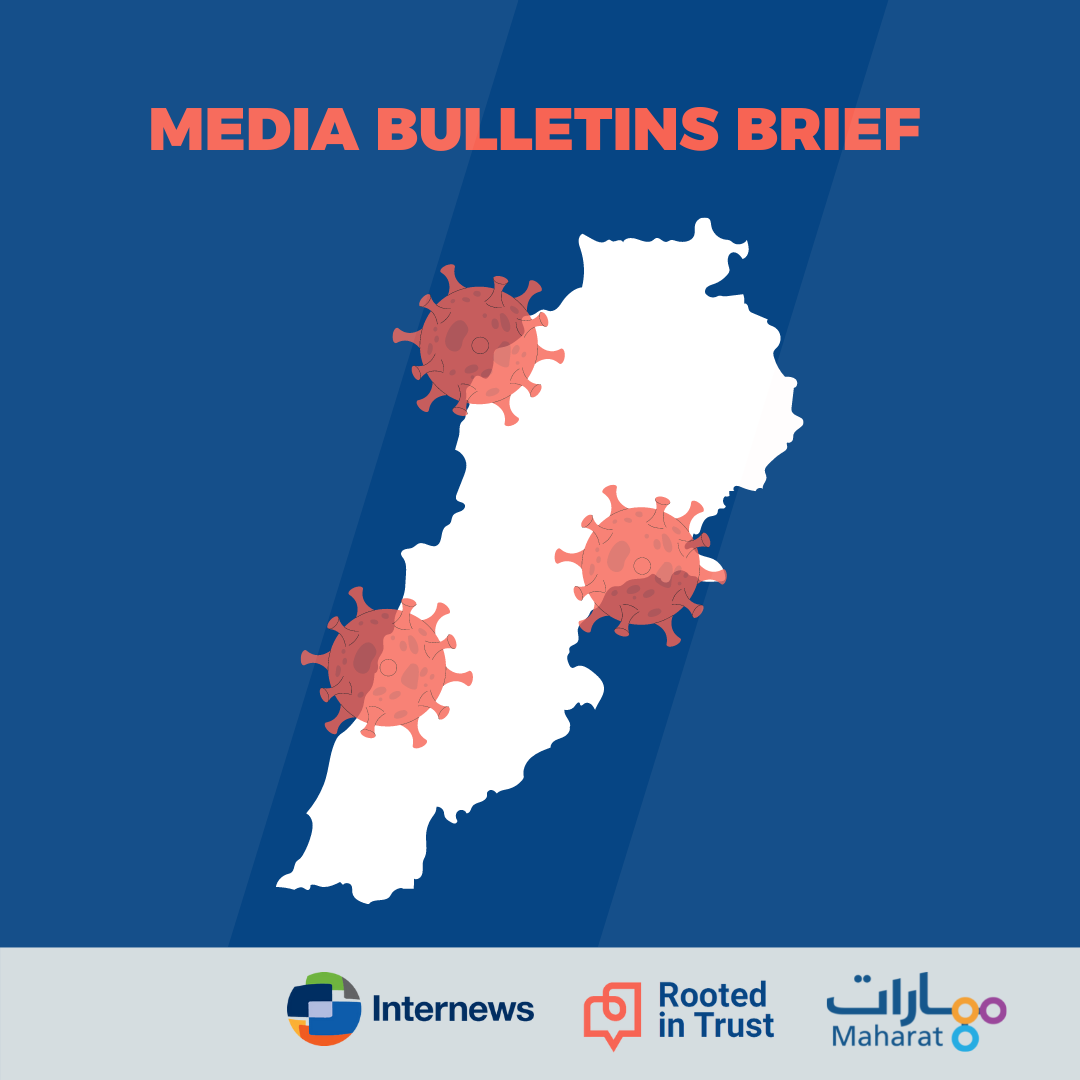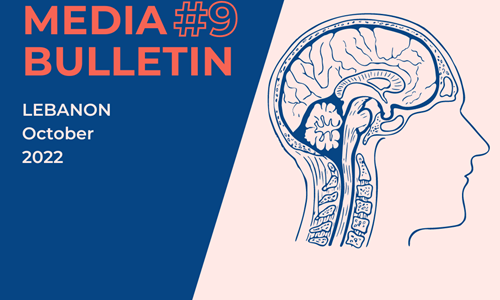
Challenges of Media Coverage of Israel’s War on Lebanon
In this report, Maharat examines the dynamics of the media war taking place in Lebanon surrounding Israel’s military offensive against Hezbollah. It underscores the importance each conflicting party assigns to media as a tool for psychological warfare - a phenomenon observed in conflicts worldwide, where each side seeks to control propaganda and impose its narrative to sway public opinion.
The report explores the difficulties journalists encounter when covering wars and crises, where reporting under such conditions becomes significantly challenging. Journalists find themselves in a genuine dilemma: How can they circumvent the media censorship imposed by the military on reports about the progress of battles? Should they convey what they know and observe, or comply with the warring parties’ demands, potentially portraying a reality that contradicts the truth or conflicts with national interests? War poses significant challenges to journalists, the foremost of which include maintaining their freedom, selecting news stories, framing their approach, and presenting the facts as they observe them rather than as the military portrays them.
Lebanese media coverage has revealed deep internal divisions related to the coverage of the ongoing war. Political factions opposed to Hezbollah’s policies have not adopted its narrative, intensifying tensions among Lebanese groups and escalating hate speech and division, leading to accusations of treason and even death threats.
The media landscape in this war was marked by a prominent role for alternative media, including digital platforms, websites, and various social media outlets. The public space became open to everyone for unlimited publishing and consumption, with individuals, including X users, competing directly with professional journalists in shaping public discourse.
The report shows the media strategy adopted by the parties to the conflict, as Israel sought to portray its war as “defensive” and claimed that its destruction of villages and residential neighborhoods was part of the fight against terrorism, while Hezbollah’s media tried to show the enemy’s brutality on the one hand and raise the morale of its fighters and supporters on the other, especially after the military setbacks it suffered at the beginning of the war.
The report also discusses the penetration of Israeli propaganda into Lebanese homes, Hezbollah’s narrative to confront the enemy, and the absence of any official Lebanese media entity to cover the war, respond to propaganda and rumors, especially those that spread on social media, or correct errors made by some media outlets in their coverage.
To check this report out:





